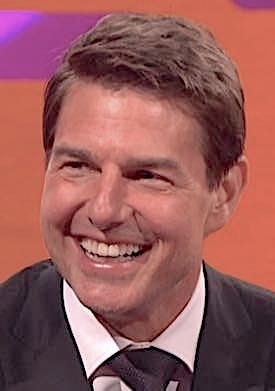Australian man spends $11 million on German lottery and gets a massive $60 million payday
/A professional gambler has revealed that he spends over $6.5 BILLION a year on bets, including the lottery, poker and horse racing.
David Walsh, 61, is an Australian full-time gambler and lottery player who is part of a syndicate led by friend and rich lister Zeljko Ranogajec.
In 2022 the group bought one million tickets in a German lottery, spending $11 million, and won over $60 million from the audacious bet.
In 2015, publicity-shy Ranogajec surprisingly started a private Twitter page, and described himself then as: ‘Allegedly the world's biggest punter and high stake professional gambler.’
Walsh, a Tasmanian-born gambler and art lover has revealed how he played one of his life's biggest and most successful bets, and he says a lot of his success is luck.
The $60 million lottery investment was one of two of his biggest wins. The other was a $63 million horse racing windfall in Japan on Christmas eve, according to the Daily Mail.
Speaking to investors at Sohn Hearts & Minds Conference in Hobart, Tasmania recently, he stole the show when he said that he believes that much of the success in gambling and the stock market is down to luck.
The stock pickers and investment bankers attending reacted, but this mischievous comment is typical of Walsh.
Walsh said: "Finding a system that works and is stable and works for a long time is extremely difficult.”
Walsh's syndicate head, Zeljko Ranogajec, 61, went all out to win a world record $7.5 million Keno jackpot in 1994.
Ranogajec reportedly spent days at a North Ryde, Sydney RSL club, often arriving at the building with seven-figure checks.
Eventually he won the jackpot and despite reportedly spending more than the $7.5 million prize is believed to have profited from a large number of additional smaller prizes.
The modest gambler said his success was mainly due to luck, and said the same reasoning applied to successful investors.
“If you've had a system that works for 20 years, it's not as a result of skill. You acquire the system that worked by luck, then once it worked, it might keep working.”
"But there's no difference in the level of skill of those that failed and those that succeeded," he noted.
by David Walsh
David Walsh - the creator of Mona in Hobart - is both a giant and an enigma in the Australian art world. A multi-millionaire who made his money gambling, David has turned a wild vision into a unique reality; he is in turns controversial, mysterious and idolised. A Bone of Fact is his utterly unconventional and absorbing memoir, about which he says...
'By some great good fortune (mine, not yours) you hold in your hands my story, credible I think, but not extraordinary (despite what those avaricious publishers might have you believe).
I have captured your attention: maybe you have some resonance with Mona, or maybe good graphical design partly seized your day. To extract 55 bucks from you I need to say something clever, but I can't think of anything.
So I'll seduce you with a tale of another, cleverer, writer. Stanislaw Lem, noted Polish science fiction author and notorious smartarse, once told an American colleague that his new collection of short stories would be published in a paper bag.
This conjured a mental picture of the stories being selected by lucky dip. The idea that my life story could be told that way, without a disabling manifesto, is appealing.
"Unfortunately Mr Lem had actually said 'paperback' (his meaning concealed beneath his thick accent), a wholly ordinary practice to deliver extraordinary stories. My story lacks Mr Lem's magical reality and philosophy, and it also lacks a paper bag. You should buy it anyway, if you are at least mildly curious as to why I want you to give me more money, even though I'm already rich."
- Available from Macmillan
Walsh joked that despite his massive winnings, one of the worst decisions he has made in life was to become a gambler.
He revealed that his life was not as glamorous as it seemed, as he was locked in an 'endless fight' with the Australian Taxation Office.
His gambling enterprise over the years has resulted in the ATO requesting him to pay a total of $37 million because of the profit he made from his betting.
The outstanding debt was resolved in 2012.














































